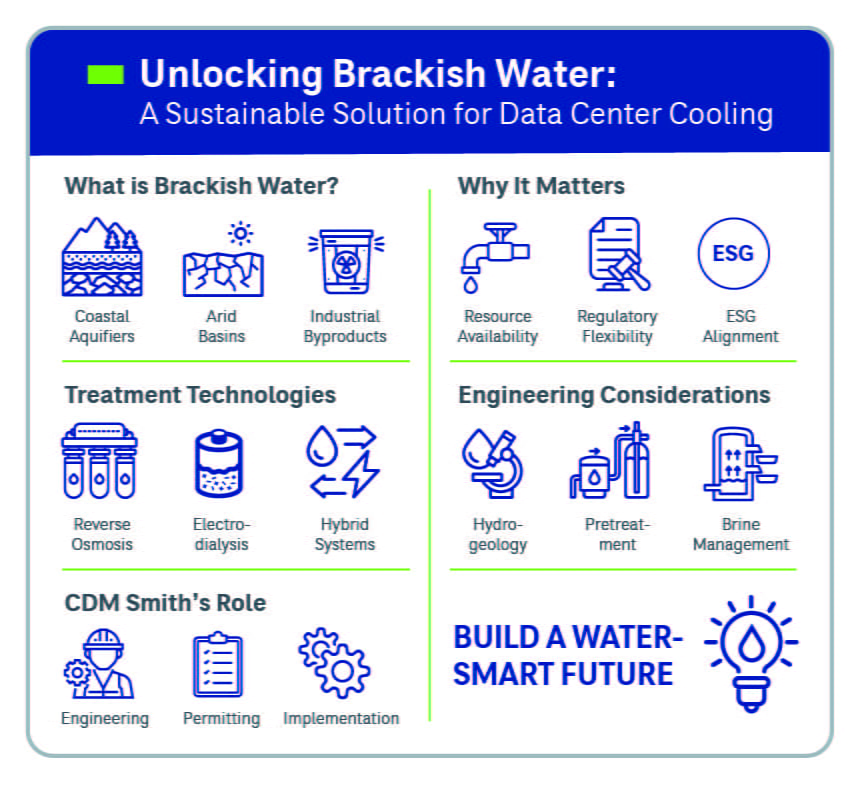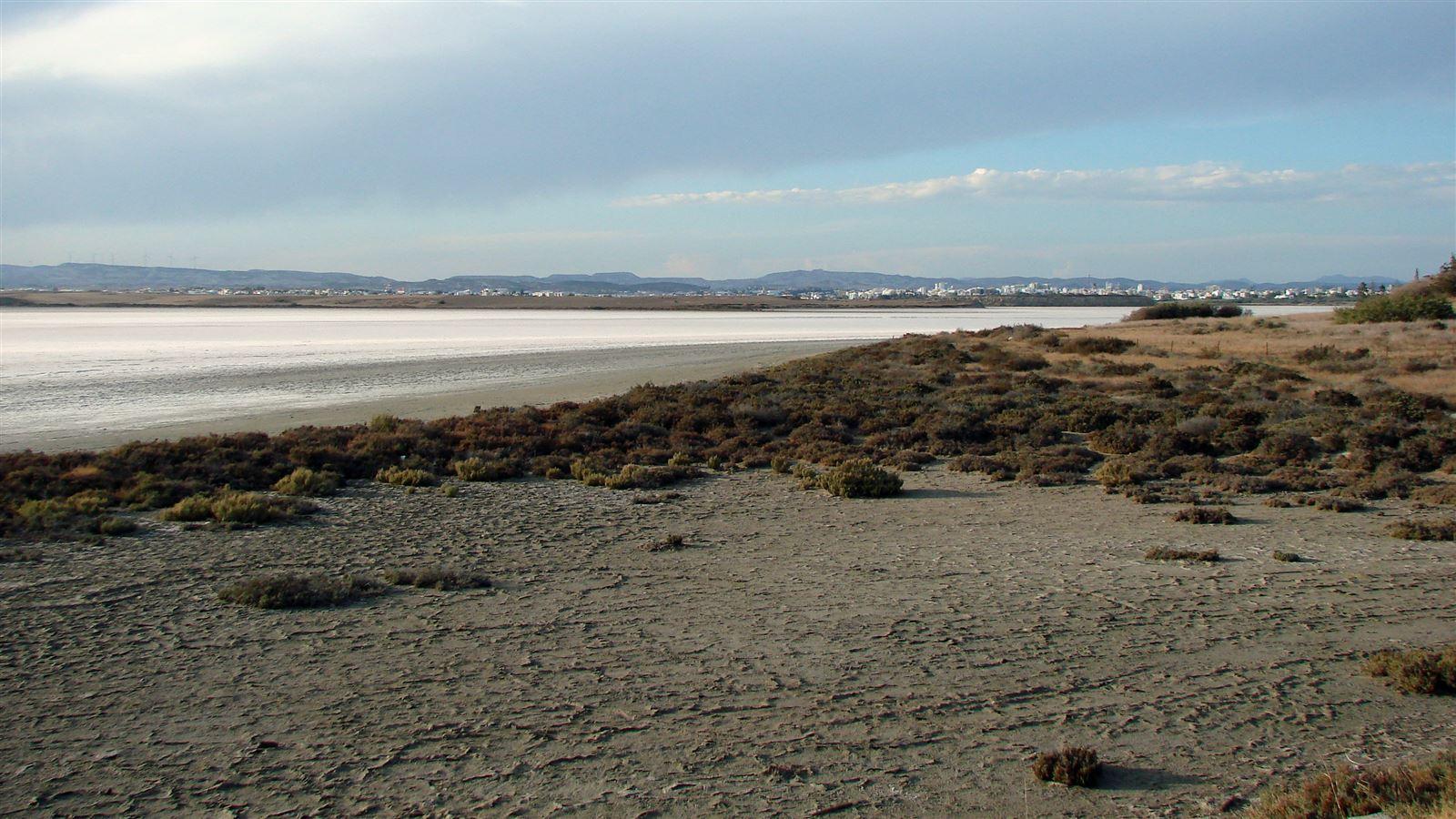Unlocking Brackish Water: A Sustainable Solution for Data Center Cooling
One promising alternative to data center cooling? Brackish groundwater—a saline resource that’s abundant, underutilized, and increasingly viable thanks to advances in treatment technologies.
What Is Brackish Water?
Brackish water is groundwater with salinity levels between freshwater and seawater. It’s often found in coastal aquifers, arid inland basins, or as a byproduct of industrial processes. While not suitable for direct use, brackish water can be treated to meet the quality requirements of data center cooling systems.
Why Brackish Water Makes Sense for Data Centers
- Resource Availability: Brackish aquifers are widespread and often overlooked. Tapping into these sources can reduce pressure on municipal supplies and provide a more resilient water portfolio.
- Regulatory Flexibility: In many jurisdictions, brackish water use is subject to fewer restrictions than freshwater withdrawals, making permitting more straightforward.
- Sustainability and ESG Alignment: Using nontraditional water sources supports corporate sustainability goals and enhances environmental stewardship—key concerns for investors and communities alike.

Treatment Technologies: Making Brackish Water Work
Modern desalination technologies have made brackish water treatment more energy-efficient and cost-effective:
- Reverse Osmosis (RO): The most common method, RO systems can be tailored to the specific salinity and quality of the source water.
- Electrodialysis Reversal (EDR): Particularly effective for lower-salinity brackish water, EDR offers high recovery rates and lower energy use.
- Hybrid Systems: Combining RO with other filtration or thermal processes can optimize performance and reduce waste.
Engineering Considerations
Implementing a brackish water solution requires careful planning:
- Hydrogeological Assessments: Understanding aquifer capacity, recharge rates, and water chemistry is essential.
- Pretreatment Needs: Brackish water often contains minerals or organics that require removal before desalination.
- Concentrate Management: Disposal of the saline concentrate (brine) must comply with environmental regulations and may require innovative solutions like deep well injection or zero-liquid discharge systems.
Case in Point: A Growing Trend
Several hyperscale data center operators are already exploring or implementing brackish water strategies. These projects demonstrate that with the right expertise and infrastructure, brackish water can be a reliable and sustainable component of a data center’s water supply.
As the digital economy grows, so too does the responsibility to manage its environmental footprint. Brackish water offers a compelling opportunity for data centers to reduce freshwater use, enhance resilience, and lead the way in sustainable innovation.

Whether it’s a treatment process, a malfunctioning piece of equipment or a systemic issue causing other symptoms, I enjoy diving in and finding the root of the issue and identifying a solution







